Questões de Língua Inglesa do ano 2015
Lista completa de Questões de Língua Inglesa do ano 2015 para resolução totalmente grátis. Selecione os assuntos no filtro de questões e comece a resolver exercícios.
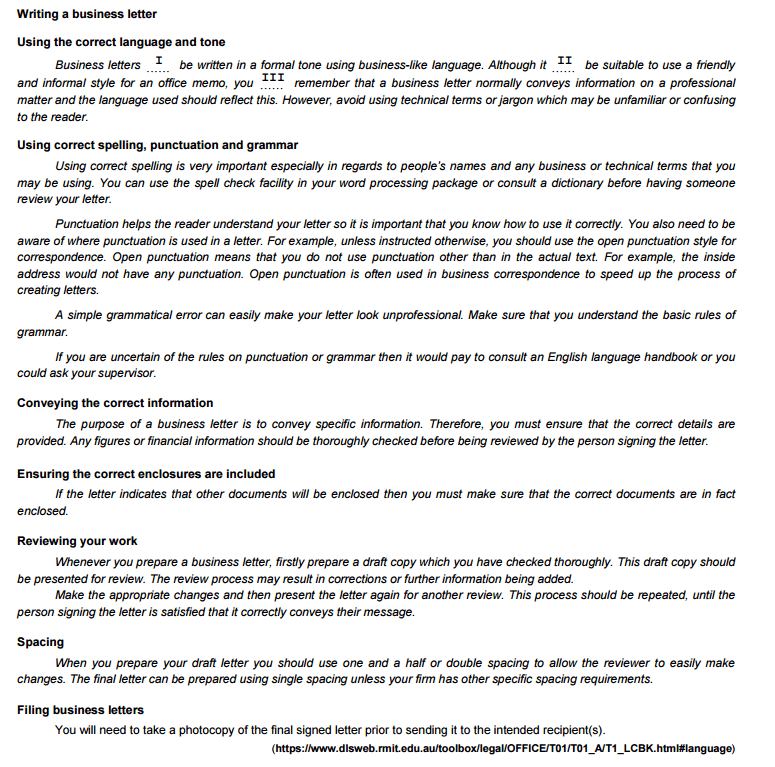 Os verbos que preenchem corretamente as lacunas I, II e III são, correta e respectivamente:
Os verbos que preenchem corretamente as lacunas I, II e III são, correta e respectivamente:
- A. may − must − should
- B. may − must − can
- C. must − should − can
- D. should − may − must
- E. can − should − must
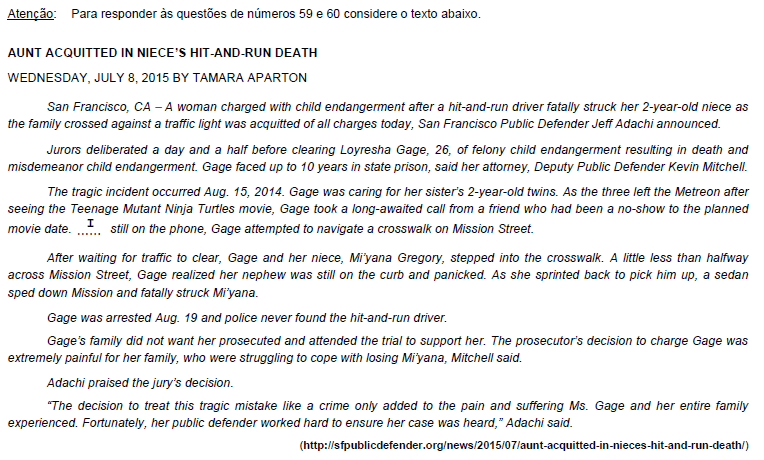 De acordo com o texto,
De acordo com o texto,
- A. o sobrinho de Gage foi atropelado por um motorista que se evadiu.
- B. a família de Gage não a suportava.
- C. Gage poderia pegar 10 anos de reclusão.
- D. foi um erro tratar esse acidente como crime.
- E. a promotoria acatou o pedido da família e processou Gage por negligência.
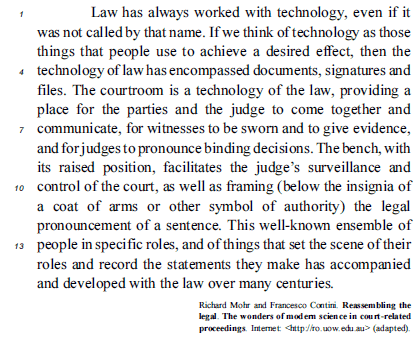
Judge the following items concerning the ideas and the language used in the text above.
The words their (l.13) and they (l.14) refer, respectively, to people (l.13) and roles (l.13).- C. Certo
- E. Errado
Regardless of questions of poetic form, the line They mingle not with their laughing comrades again (l. 17) could be replaced by:
- A. they will not fight with their laughing comrades.
- B. they dont mingle with their laughing families.
- C. they do not share moments with their happy mates.
- D. they do not fight with their laughing comrades.
- E. the fallen will not fight with their happy comrades.
In the line But where our desires are and our hopes profound (l. 21):
- A. where is an interrogative pronoun.
- B. profound is a verb.
- C. desires and hopes are verbs.
- D. the verbal form are was deliberately suppressed after hopes.
- E. our is a possessive pronoun.
 By derivation, the adverb highly (l. 52) is formed from the adjective high. The following sequence contains only adverbs formed by the same derivational process:
By derivation, the adverb highly (l. 52) is formed from the adjective high. The following sequence contains only adverbs formed by the same derivational process:
- A. ally; powerfully; greatly; kindly; tenderly.
- B. greatly; commonly; fastly; wonderfully; interestingly.
- C. internationally; powerfully; unfortunately; mainly; fairly.
- D. lovely; hardly; friendly; internationally; mainly.
- E. friendly; manly; lovely; fastly; quickly.
 We are outraged, said Mong Gwang, a captain with the Kachin Independence Army, which controls large swaths of territory along the border with China (l.26-28). In indirect speech, the sentence could read as follows:
We are outraged, said Mong Gwang, a captain with the Kachin Independence Army, which controls large swaths of territory along the border with China (l.26-28). In indirect speech, the sentence could read as follows:
- A. Mong Gwang, a captain with the Kachin Independence Army, which controls large swaths of territory along the border with China, said that they are outraged.
- B. The Kachin Independence Army, which controls large swaths of territory along the border with China, said that captain Mong Gwang was outraged.
- C. The Kachin Independence Army, which controls large swaths of territory along the border with China, said that captain Mong Gwang was outraged.
- D. We are outraged. That was said by Mong Gwang, a captain with the Kachin Independence Army, which controls large swaths of territory along the border with China.
- E. Mong Gwang, a captain with the Kachin Independence Army, which controls large swaths of territory along the border with China, said they were outraged.
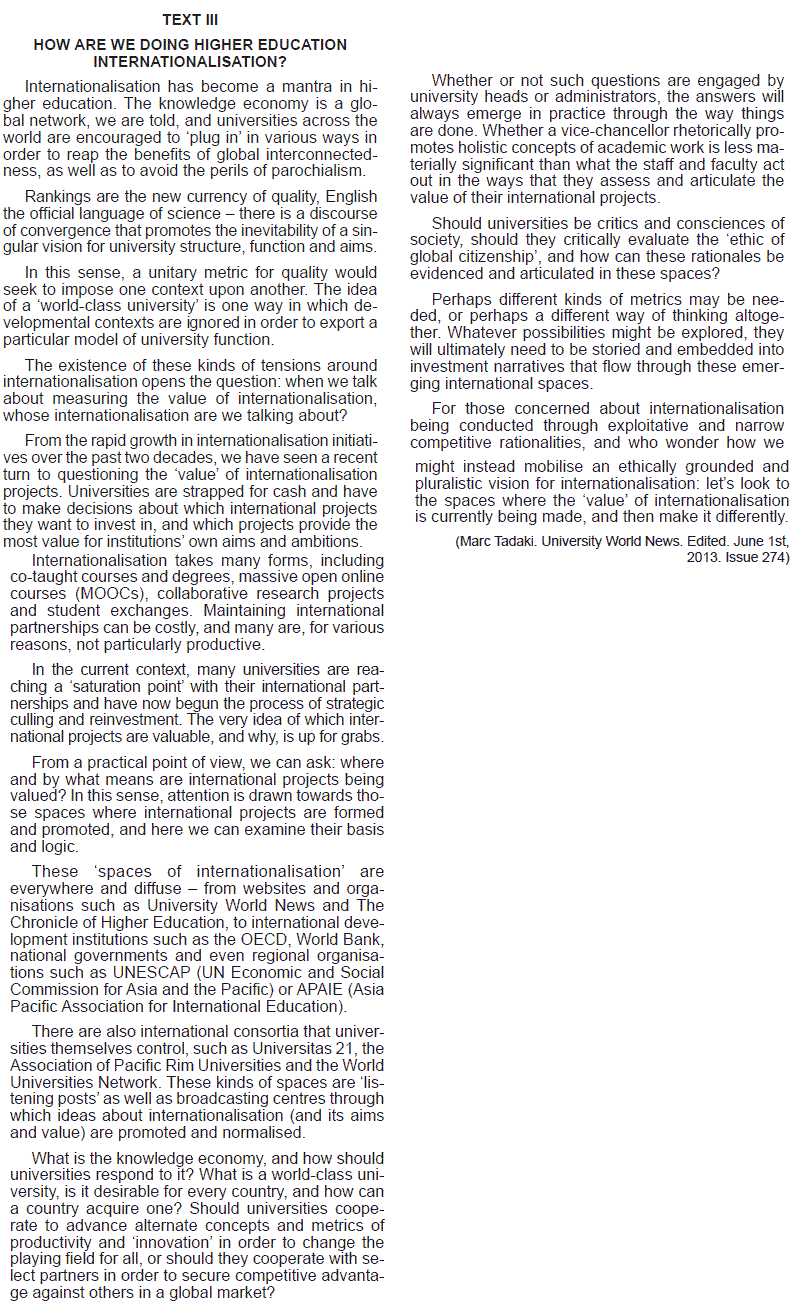 Punctuation has been changed in paragraphs 2 to 6. The only case that DID NOT cause any relevant change in meaning nor problem of cohesion is:
Punctuation has been changed in paragraphs 2 to 6. The only case that DID NOT cause any relevant change in meaning nor problem of cohesion is:
- A. In this sense, a unitary metric for quality would seek to impose one context upon another. The idea of a world-class university is one way in, which developmental contexts, are ignored in order to export a particular model of university function.
- B. The existence, of these kinds of tensions, around internationalization, opens the question. When we talk about measuring the value of internationalization whose internationalisation are we talking about?
- C. Rankings are the new currency of quality. English, the official language of science. There is a discourse of convergence that promotes the inevitability of a singular vision for university structure, function and aims.
- D. From the rapid growth in internationalisation initiatives, over the past two decades we have seen a recent turn to questioning the value of internationalisation projects. Universities are strapped for cash, and have to make decisions about which international projects they want to invest in, and which projects provide the most value, for institutions own aims and ambitions.
- E. Internationalisation takes many forms, including co-taught courses and degrees, massive open online courses (MOOCs), collaborative research, projects and student exchanges, maintaining international. Partnerships can be costly, and many are, for various reasons, not particularly productive.
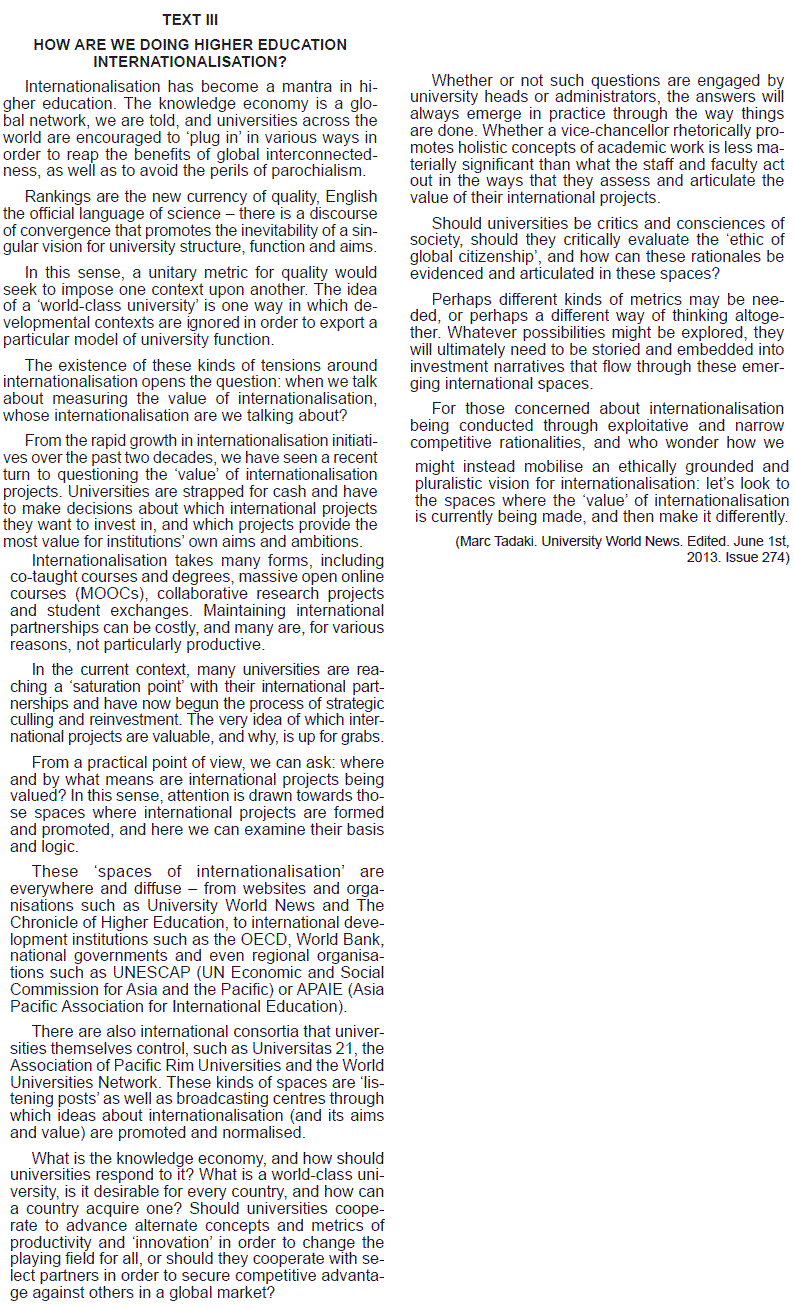 In Should universities be critics and consciences of society, should they critically evaluate the ethic of global citizenship, and how can these rationales be evidenced and articulated in these spaces? (paragraph 13), the words in bold face are, respectively:
In Should universities be critics and consciences of society, should they critically evaluate the ethic of global citizenship, and how can these rationales be evidenced and articulated in these spaces? (paragraph 13), the words in bold face are, respectively:
- A. adjective; adjective; adverb; adjective; adjective.
- B. noun; noun; adjective; noun; adjective.
- C. noun; noun; adverb; adjective; adjective.
- D. noun; noun; adverb; noun; noun.
- E. adjective; noun; adverb; adjective; noun.
 A alternativa que preenche corretamente a lacuna I é
A alternativa que preenche corretamente a lacuna I é
- A. behind
- B. that
- C. since
- D. them
- E. than


